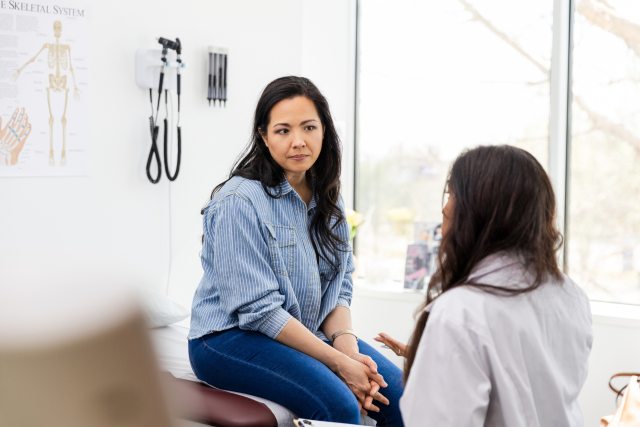Keep track of your essential cancer screenings with this handy download

Which cancer screenings should you get, and when? Here's a look at common tests starting at age 25.
Cancer rates are going up among people younger than 50. That makes it all the more important to stay current with screenings in middle age, or even earlier for certain types of cancer.
“Finding lung, colorectal and breast cancer at an early stage allows for less aggressive treatment, which can help patients live better and longer,” says Victor Gonzalez, MD, a PeaceHealth radiation oncologist in Bellingham, Washington. “It really is a better situation all around.”
People with cancer may have no symptoms in the early stages, however, so regular screenings are the best way to spot it.
This downloadable wallet card can help you keep track of when it's time to get screened for common cancers like breast, colon, lung and prostate.
When should you start getting screened?
Here's a look at the milestones to consider for common adult cancer screenings:
Age 25:
- People with a cervix, start screenings for cervical cancer. This involves a physical exam (pap smear) by a primary care or obstetric/gynecology provider.
Age 40:
- People at average risk for breast cancer, start getting a yearly mammogram. This imaging test takes about 30 minutes to gather detailed images of your breast tissue.
Age 45:
- Anyone at average risk for colon cancer, start regular screening. This may involve sending in a test with a stool (poop) sample or a one-day procedure called a colonoscopy.
Age 50:
- If you're at average risk for prostate cancer, talk with your doctor about regular screening. This involves a blood test. It takes a few minutes to collect a sample, and a few days for the results.
- Start screening for lulung cancer if you smoked at least a pack a day for one year. This usually involves a type of 3-D imaging called a CT (computed tomography) scan. It takes 30-60 minutes to gather detailed pictures of your lungs.
Talk with your primary care provider about these and other screenings that might be right for you based on your age, health history or family history. They may take just a few minutes, and the benefits are immeasurable.






